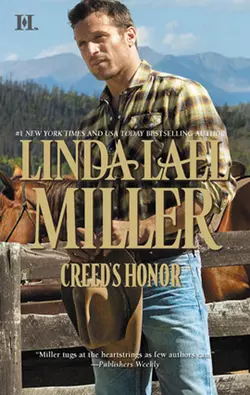Creed′s Honor

Linda Miller
Тип: электронная книга
Жанр: Современная зарубежная литература
Язык: на английском языке
Стоимость: 458.46 ₽
Статус: В продаже
Издательство: HarperCollins
Дата публикации: 16.04.2024
Отзывы: Пока нет Добавить отзыв
О книге: Conner Creed knows exactly who he is: a hard-working rancher carrying on his uncle’s legacy in Lonesome Bend, Colorado. Maybe a small-town cowboy’s life isn’t his dream, but he owes the man who took him in as a kid. Until the identical twin brother he’s been estranged from for years re-enters his life.Conner struggles with identity issues as he gets to know his wilder brother. And then he meets Tricia McCall, a beautiful woman who knows a thing or two about living someone else’s dreams.Together, they just might find their own dreams right here in Lonesome Bend…